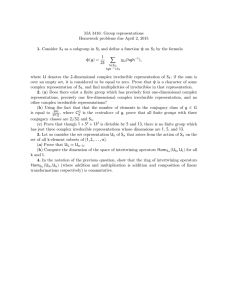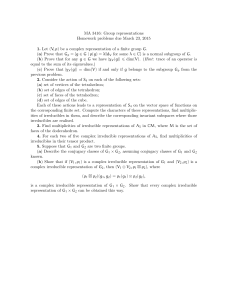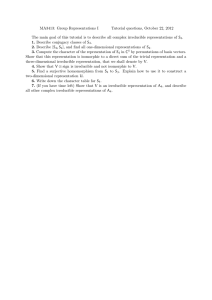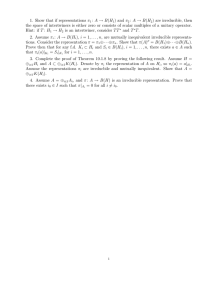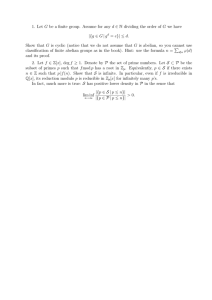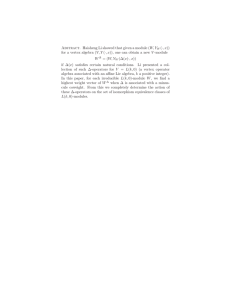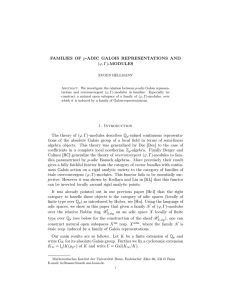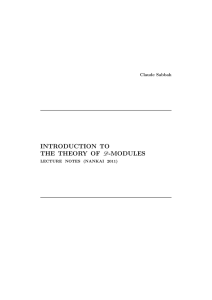REPRESENTATION THEORY. EXAMPLES OF POSSIBLE EXAM
advertisement
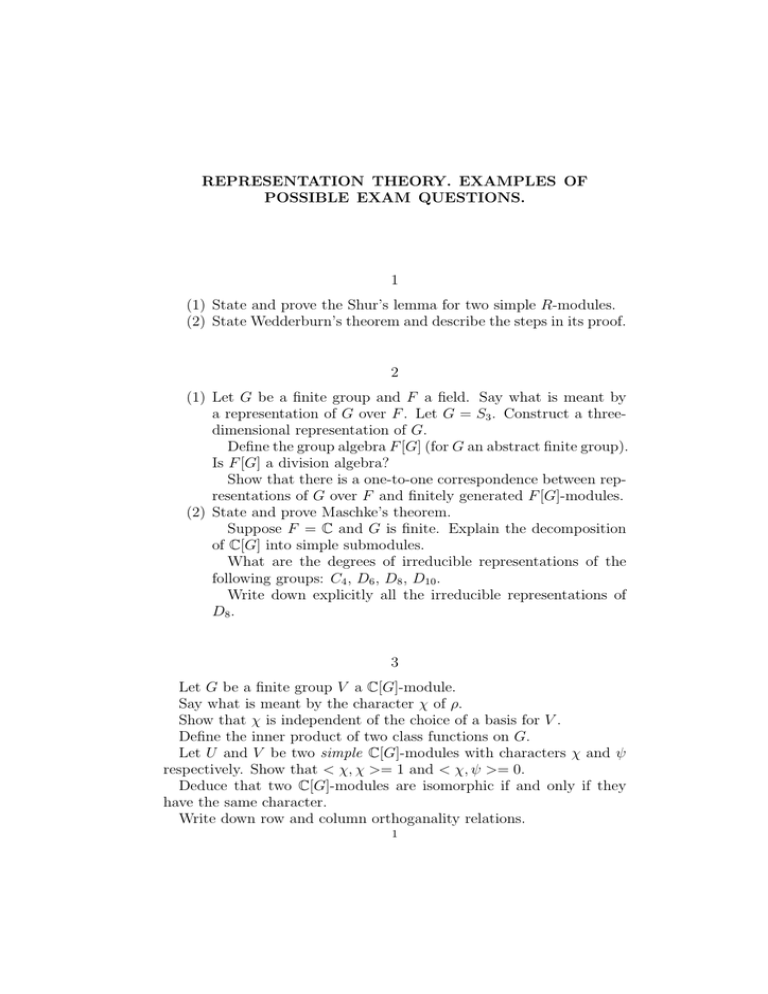
REPRESENTATION THEORY. EXAMPLES OF
POSSIBLE EXAM QUESTIONS.
1
(1) State and prove the Shur’s lemma for two simple R-modules.
(2) State Wedderburn’s theorem and describe the steps in its proof.
2
(1) Let G be a finite group and F a field. Say what is meant by
a representation of G over F . Let G = S3 . Construct a threedimensional representation of G.
Define the group algebra F [G] (for G an abstract finite group).
Is F [G] a division algebra?
Show that there is a one-to-one correspondence between representations of G over F and finitely generated F [G]-modules.
(2) State and prove Maschke’s theorem.
Suppose F = C and G is finite. Explain the decomposition
of C[G] into simple submodules.
What are the degrees of irreducible representations of the
following groups: C4 , D6 , D8 , D10 .
Write down explicitly all the irreducible representations of
D8 .
3
Let G be a finite group V a C[G]-module.
Say what is meant by the character χ of ρ.
Show that χ is independent of the choice of a basis for V .
Define the inner product of two class functions on G.
Let U and V be two simple C[G]-modules with characters χ and ψ
respectively. Show that < χ, χ >= 1 and < χ, ψ >= 0.
Deduce that two C[G]-modules are isomorphic if and only if they
have the same character.
Write down row and column orthoganality relations.
1
2REPRESENTATION THEORY. EXAMPLES OF POSSIBLE EXAM QUESTIONS.
Let G be a finite group that has four conjugacy classes and suppose
we are given the following part of its character table:
gi
g1 g2 g3 g4
|CG (gi )| 12 4 3 3
χ1
1 1 1 1
χ2
1 1 ω ω2
χ3
1 1 ω2 ω
χ4
α1 α2 α3 α4
where ω = e2iπ/3 .
Find the values αi taken by χ4 .
4
Let V and W be two C[G]-modules with characters χV and χW
respectively. Define the tensor product V ⊗ W and show that the
product χV χW is a character.
Show that a product of a character by a linear character is irreducible.
The group S5 has 7 conjugacy classes. Write down their representatives. Find two characters of degree one χ1 and χ2 .
Calculate the premutation character χ3 and show that it is irreducible.
Hence find another irreducible character χ4 .
5
(1) Let G be a finite group and H a subgroup. Let U be a C[G]module and V a C[H]-module. Define the restriction U ↓ H
and induction V ↑ G. State the Frobenius reciprocity.
(2) Let G = D10 = {a, b : a5 = b2 = 1, b−1 ab = a} and let H be
the subgroup generated by a. Write down the character table
of H. Calculate the induced characters, say which ones are
irreducible.
